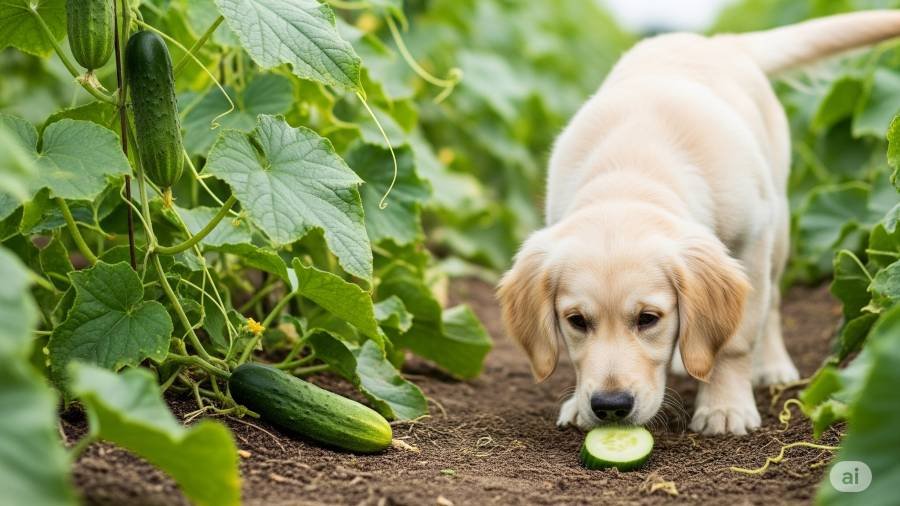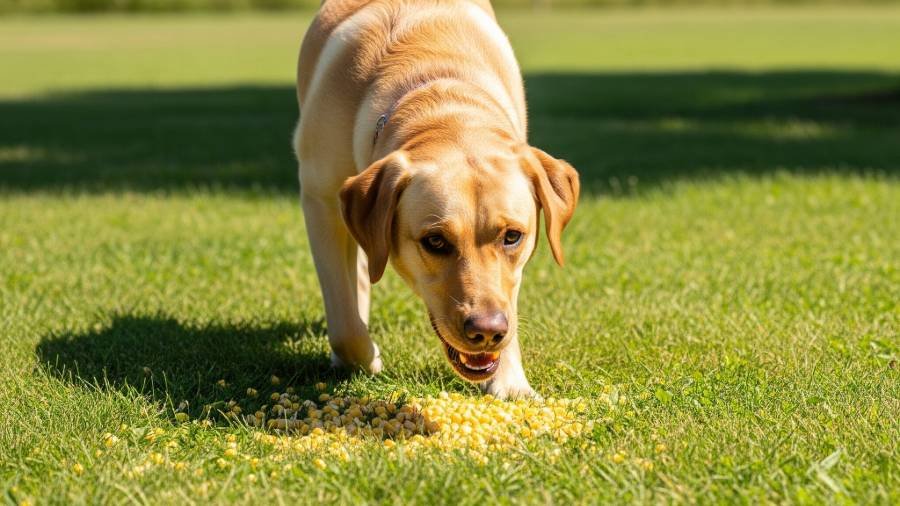Yes, dogs can eat apples as a safe and nutritious treat when prepared properly, offering a range of benefits that can enhance a dog’s diet.
This article provides a unique, detailed guide on feeding apples to your dog, exploring their advantages, potential risks, and safe practices.

Potential Benefits of Apples for Dogs
When dogs can eat apples in moderation, they provide several advantages that support a dog’s overall health:
- Rich in Fiber: Apples are high in dietary fiber, aiding the digestive system by promoting regular bowel movements and preventing constipation.
- Low-Calorie Treat: With minimal calories, apples serve as a healthy snack, ideal for dogs needing to manage their weight within their dog food regimen.
- Antioxidant Properties: The presence of vitamin C and other antioxidants helps boost the immune system, protecting against cellular damage.
- Dental Health: Chewing on apple pieces can help clean a dog’s teeth, reducing plaque buildup and supporting oral hygiene.
- Hydration Support: The high water content in apples contributes to hydration, especially beneficial for active dogs on warm days.
- Natural Sweetness: The mild sweetness makes apples a palatable treat, encouraging dogs to enjoy healthy options without added sugars.
These benefits of apples for dogs make them a valuable addition when you feed your dog apples as an occasional treat.
Risks and Dangers of Apples for Dogs
While apples are safe for dogs, certain risks arise if not prepared or fed correctly:
- Choking Hazard: Whole apples or large chunks can pose a choking hazard, particularly for small dogs or puppies if not cut the apple into small pieces.
- Apple Seeds: Seeds contain trace amounts of cyanide, which can be toxic to dogs in large quantities, though a few seeds are unlikely to cause harm.
- Apple Core: The core can cause intestinal blockage or choking if swallowed, necessitating the removal of seeds and cores before feeding.
- Sugar Content: Overconsumption of apples may lead to digestive upset or weight gain due to natural sugars, especially in dogs with diabetes.
- Pesticide Exposure: Non-organic apples may carry pesticide residues, requiring thorough washing to avoid potential health issues.
- Allergic Reactions: Though rare, some dogs may experience itching or gastrointestinal distress as an allergic response to apples.
How to Safely Feed Apples to Dogs
To ensure apples are a safe treat, follow these guidelines when you feed your dog apples:
- Wash Thoroughly: Rinse apples under water to remove dirt, pesticides, or wax, even if organic, to protect your dog’s health.
- Remove the Seeds and Cores: Cut away seeds and the apple core to eliminate cyanide risk and prevent choking or blockages.
- Cut the Apple into Small Pieces: Chop apples into bite-size pieces, especially for smaller dogs, to ensure safe chewing and swallowing.
- Peeling the Apple (Optional): Remove the skin if your dog has digestive sensitivities, though it’s generally safe and nutritious.
- Avoid Additives: Serve plain apples without peanut butter, sugar, or other toppings that could add unnecessary calories or toxins.
- Feed in Small Portions: Offer a small amount (e.g., 1-2 tablespoons for small dogs, up to ¼ cup for large dogs) once or twice a week, keeping treats under 10% of daily caloric intake.
- Monitor Reactions: Introduce apples gradually and watch for digestive upset or allergies over 24-48 hours. Consult a vet if issues arise.
- Consult a Vet: Seek veterinary advice before adding apples, especially for dogs with diabetes or a history of food sensitivities.
Signs of Apple-Related Issues
If a dog eats apples improperly or reacts poorly, look for these warning signs:
- Vomiting, diarrhea, or reduced appetite (possible digestive system upset from overeating or seeds)
- Difficulty breathing or choking (from apple core or large pieces)
- Excessive scratching or swelling (rare allergic reactions)
- Lethargy or unusual behavior (potential cyanide exposure from seeds, though rare)
- Abdominal pain or bloating (intestinal blockage or sugar overload)
If these signs appear, stop feeding apples and contact a veterinarian immediately. Severe cases may require urgent care.
Expert Opinions
Veterinary experts, including the American Kennel Club (AKC) and the Pet Poison Helpline, confirm that dogs can eat apples safely in moderation, praising their fiber and vitamin content as a benefit of apples for dogs.
They caution against seeds, cores, and overfeeding, recommending veterinary consultation for dogs with specific health needs. For more on safe snacks, check what vegetables can dogs eat.
Additional Considerations
- Health Conditions: Dogs with diabetes or gastrointestinal issues should limit apples due to sugar. Consult a vet first.
- Puppies: Young dogs need smaller pieces and closer monitoring to prevent choking.
- Dog Preferences: Many dogs enjoy the crisp texture of apples, but some may not. Adjust based on their response.
- Organic vs. Non-Organic: Organic apples may reduce pesticide risk, but all should be washed thoroughly.
- Storage: Keep fresh apples refrigerated and use within a month; slice and freeze extras for a cool treat.
- Complementary Role: Apples should enhance, not replace, a balanced dog’s diet, serving as a supplement to their primary nutrition.
Safe Treat Alternatives
Instead of relying solely on apples, consider these safe-for-dogs treats, tailored to enhance a dog’s diet:
- Cooked Tuna: Plain, water-packed tuna offers protein and omega-3s.
- Cooked Spinach: A small portion of steamed spinach provides iron.
- Strawberries: A few chopped strawberries supply antioxidants.
- Plain Oatmeal: A teaspoon of plain cooked oatmeal supports digestion.
Introduce new treats gradually, monitor for reactions, and consult a vet to ensure a balanced diet.
Dogs can eat apples as a safe, nutrient-rich treat when fed in small portions with seeds and cores removed and cut the apple into small pieces, offering benefits of apples for dogs like fiber, vitamin C, and support for a dog’s teeth and digestive system.
However, risks such as choking hazard from apple core, toxicity from apple seeds containing trace amounts of cyanide, or digestive upset from overfeeding require careful preparation and moderation.
Puppies or dogs with health issues like diabetes should limit apples unless approved by a vet, and a balanced dog’s diet should remain the priority.
Always consult a veterinarian before feeding your dog apples, and consider safe alternatives for variety.
For more on canine nutrition, explore can dogs eat bell peppers or what fruits can dogs eat.
For additional questions about what dogs can eat or dietary concerns, feel free to ask!





